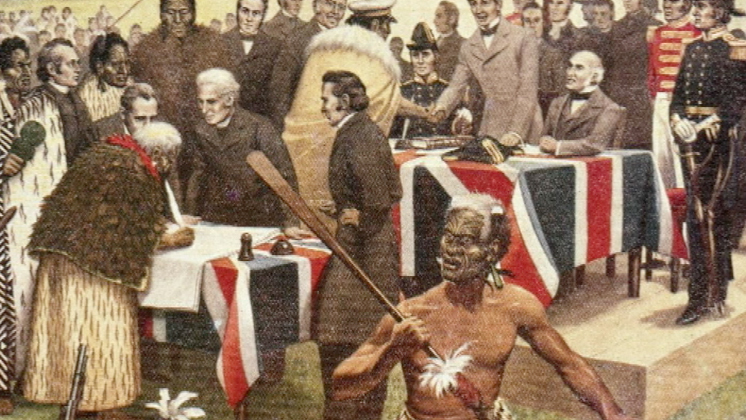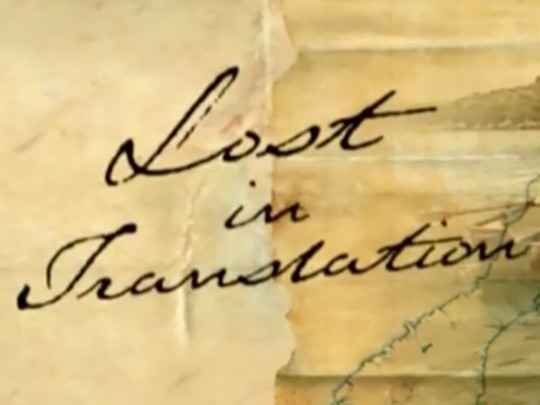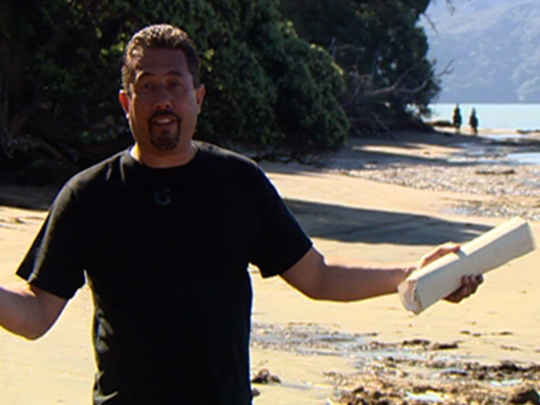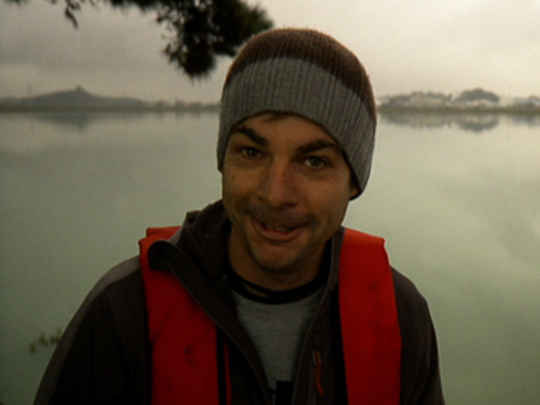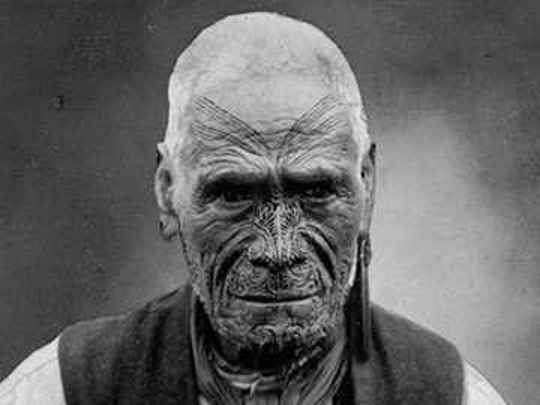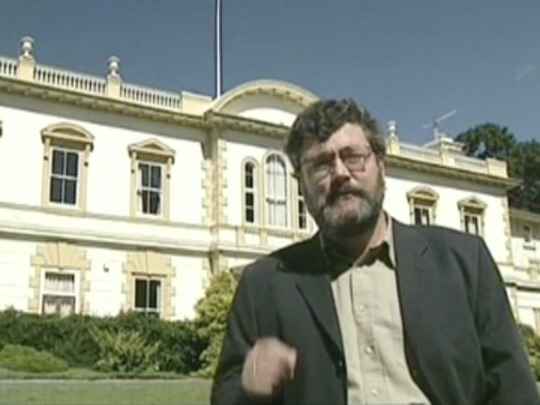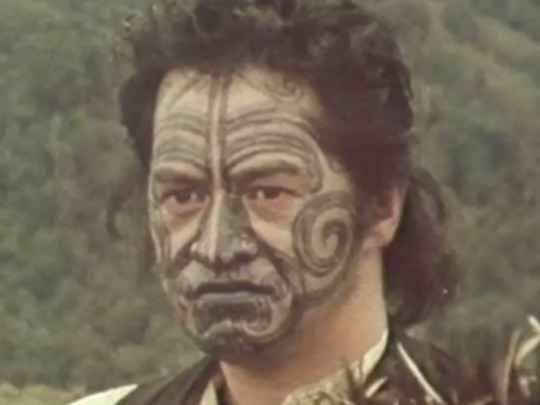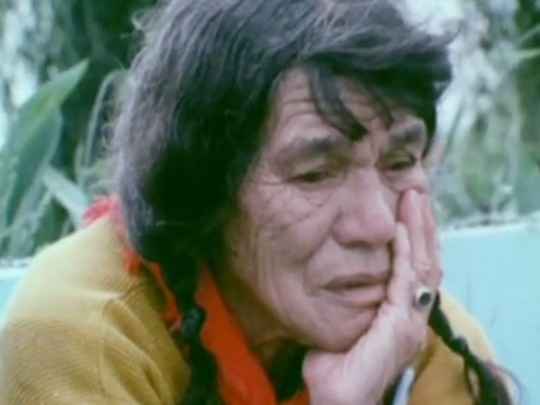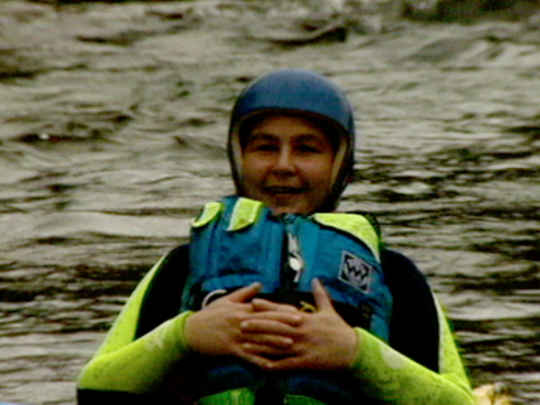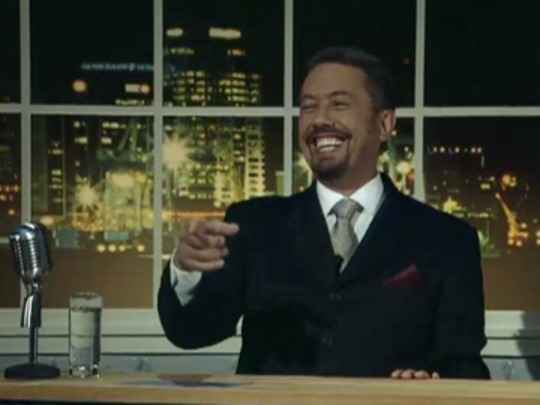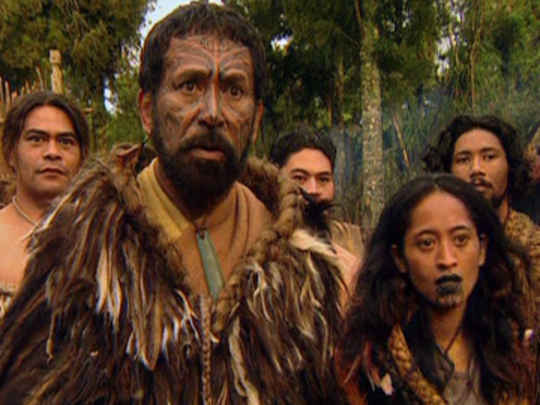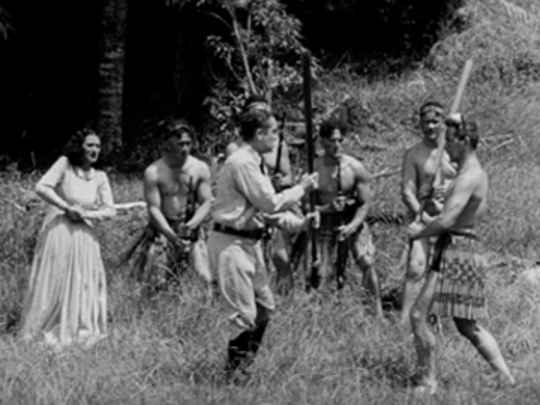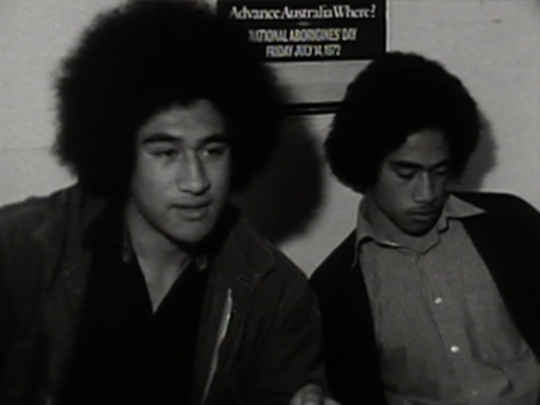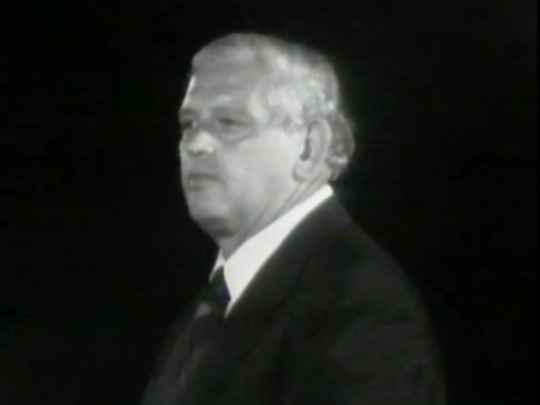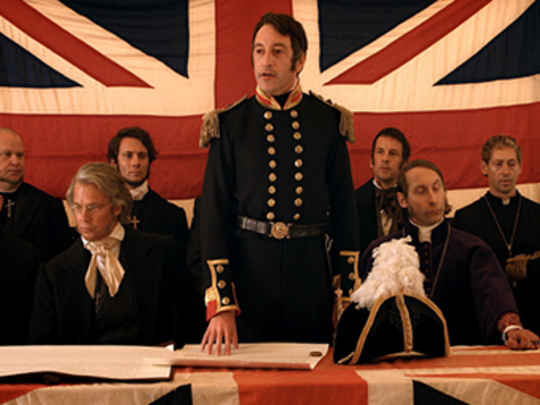Lost in Translation 8 - The Waikato-Manukau and Printed Sheets (episode eight)
Television (Full Length Episode) – 2009
These days, Port Waikato is a sleepy little spot, famous for its abundance of kaimoana. But in 1840 it was humming. There was a bustling Anglican mission station on this spot: it had a farm, a timber mill, a bakery, a church, and a school so big that 700 students took their exams here in 1839.
– Mike King describes Port Waikato, early in this episode
Nothing, I’d say nothing.
– A kuia at Oraeroa Marae replies to the question of how much her tūpuna knew about the Treaty of Waitangi
...with those two sheets, there's a difference there ... you know your own language — that’s the only language you know. Can they understand the translation from a Māori copy to an english writing. Did we all understand that?
– Ngāti Tahinga kaumatua Richard Thompson on the treaty sheets being in two different languages
Well it’s certainly generally understood that the two texts aren’t really a translation one of the other, and nor could they be because the cultures from which the words come, were and are too different.
– Ex Waitangi Tribunal Chairperson Joe Williams on the English and te reo versions of the treaty
Waikato taniwha rau, he piko he taniwha: the Waikato River has many bends, and at each bend there lives a taniwha.
– Mike King shares one version of a famous Waikato whakataukī (saying)
His signature was so important because he was the only one that had the mandate and the mana within the eyes of the people to be able to sign such a serious document.
– Waikato expert Rahui Papa (Waikato–Tainui) on efforts to get Waikato/Maniapoto/Hauraki leader Pōtatau Te Wherowhero to sign the treaty
He wouldn’t allow his mana to sit under the mantle of a woman.
– Waikato expert Rahui Papa (Waikato–Tainui) on Pōtatau Te Wherowhero's refusal to sign the treaty
The Kīngitanga was a movement that sought to stop tribal fighting — to stop the intertribal fighting, to stop the sale of land, so to hold on to the land, to hold onto the customary practises and to stop the fighting. Me puru I te toto, hei pupuru i te mana, hei pupuru i te whenua. And that was the original ideals of the Kīngitanga.
– Rahui Papa (Waikato–Tainui) on the birth of the Kīngitanga (Māori King movement)
The Waikato-Manukau copy is the only one of the nine Treaty of Waitangi sheets to be written in English. This one English copy became the official version of our founding document.
– Presenter Mike King, at the start of this episode
So how did this rogue English copy come to be here? And why did Māori put their names to a sheet where the terms spelt out in English are so different from those written in Māori?
– Presenter Mike King asks the big questions, at the start of this episode
On a March morning in 1840, 1500 Māori from all over the Waikato and Maniapoto gathered at Port Waikato mission station, for an annual hui ... [Robert] Maunsell decided to seize the moment. He pressed ahead and got 32 leading Waikato and Maniapoto rangatira to sign the English copy of the treaty, before they broke camp and headed back to their own territory. And either then or later, he got another five signatures on the printed Māori sheet. But as the chiefs put their names to the two sheets, they were unaware that they'd just signed two documents with two very different meanings.
– Presenter Mike King on the actions of Anglican missionary Robert Maunsell, early in this episode
The treaty contains all the big ideas of a new country: the right of its indigenous people, the right of its coloniser, the relationship between the two, the concept of partnership. All of those things are powerful motivating start-up ideas for a new country. The words sometimes carry those things, sometimes don't — but as a symbol, it is one of the most powerful symbols a country could have.
– Ex Waitangi Tribunal Chairperson Joe Williams on the Treaty of Waitangi
